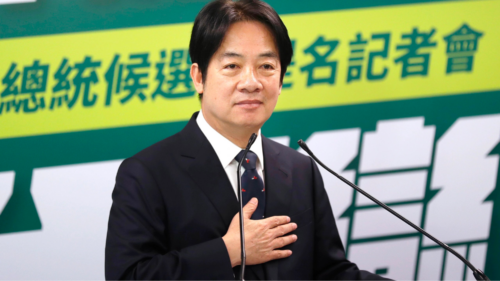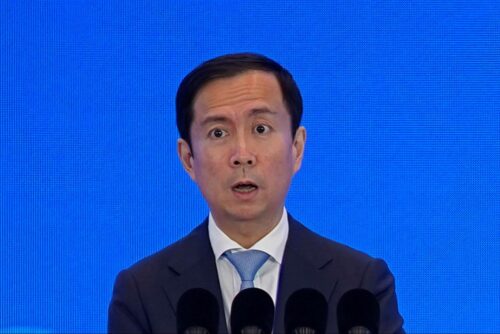Chinese video-streaming company Leshi gives staff a short work week
A struggling but famous Chinese internet company with only 400 employees has taken the lead in introducing a 4.5 work week for employees. Is it just hype, or will others in the industry follow suit?

Leshi Internet Information & Technology Corp 乐视视频 — a video-streaming company founded in 2011 that has previously called itself “China’s Netflix” and “China’s Youtube” — has announced plans to offer a 4.5-day work week to employees.
In a new year’s note distributed to its employees on Tuesday this week, Leshi said that it had introduced half-day Wednesdays for all staff starting from January 1, allowing them to enjoy a flexible schedule and take extra time off as long as they work five consecutive hours on the day. The policy has no strings attached, meaning that workers don’t have to present an efficiency plan to complete five days’ work in a shortened week and will still be on full pay.
“We strongly believe that people shouldn’t live to work. We should work to make our life better,” Leshi’s CEO Zhāng Wēi 张巍 wrote in the letter, before noting that workers may opt to engage in outdoor activities to reduce stress, spend more time with family members and especially those with medical needs, and develop professional skills outside the workplace.
“We believe that this new program will increase workers’ happiness, productivity, and creativity. We believe that if we create a more relaxed environment for our employees, they will become more self-disciplined and more willing to give back to the company and society as a whole,” Zhang added.
In addition to the new work week arrangement, the Beijing-based company also announced in the note that with an improved business outlook, it had lifted temporary pay reductions that it had implemented early on in the COVID-19 pandemic. “COVID-related lockdowns forced us to embrace remote working and this shift made us realize that some work does not need to be done in the office,” Zhang said. “Leshi takes pride in being different and breaking new ground.”
According to Cháng Lè 常乐, Leshi head of human resources, the idea has been under consideration since July 2022, and the final decision was made in December.
China news, weekly.
Sign up for The China Project’s weekly newsletter, our free roundup of the most important China stories.
400 employees
Leshi’s move was not completely out of the blue. In July, the company stirred up some curiosity on the Chinese internet by writing in its social media posts that it was “striving to launch a 4.5-day work week program” in the near future.
With only around 400 employees, Leshi is tiny compared with other Chinese tech companies, such as internet giants Alibaba (nearly 250,000 employees) and Tencent (more than 100,000). Leshi’s internal culture is also less competitive, and employees are not pitted against each other for positions, the company wrote on Weibo after its four-day work week announcement attracted attention.
“Don’t be surprised if we end up becoming the first to roll out a 36-hour work week policy,” it stated back then. “We also want to note that we never delayed any salary payments or social benefits in the past five years.”
Leshi’s new policy has been widely praised on Chinese social media. On Tuesday, several hashtags related to the news were trending on Weibo, with many saying that they hoped that Leshi’s decision would facilitate a wider adoption of shortened work weeks in Chinese companies. One Weibo user asked: “Is Leshi recruiting? Can someone please share the email address of any HR person there?”
The market is ‘too competitive to slack off’
Corporate life in China — especially in the ultra-competitive tech sector — can be so unforgiving that dying from overwork is not unheard of. Exhausted Chinese tech employees have in recent years pushed back against the toxic hustle culture that is nicknamed “996” because it requires people to work from 9 am to 9 pm, six days a week.
The “lying flat” movement, a social media meme that saw burned-out and overwhelmed Chinese millennials opting out of the rat race to lead a low-desire life in 2021, was partially inspired by the protests against the “996” practice.
But despite the discontent and some Chinese internet companies’ promises to support the well-being of their employees, corporate culture in the Chinese tech world has changed little on the ground, said Rui Ma, a veteran analyst of China’s tech industry and the founder of investment consulting firm Tech Buzz China.
She told The China Project: “I know of people who were dreaming of moving to a cushier job who’ve given that up as the job market deteriorated,” she added. “What has changed is that it has become more widely accepted that ‘996’ is hated by employees. What hasn’t changed is a feeling by many that it’s unavoidable — the market is simply too competitive to ‘slack off.’”
On Weibo, while most commenters reacted to Leshi’s news positively, some people raised questions about its ulterior motives, intimating that the decision was more of a publicity stunt to raise the company’s profile to potential investors or a way to attract talent. Rui found the skepticism not entirely groundless, given that Leshi “is a scandal-ridden company and not particularly known for being well governed or managed,” she said.
From rising star to a mountain of debt
Established in 2004 by serial entrepreneur Jiǎ Yuètíng 贾跃亭 and headquartered in Beijing, Leshi started out as a video streaming portal and first rose to prominence in 2011 when it splurged 20 million yuan ($2.9 million) acquiring the exclusive online broadcasting rights of Empresses in the Palace 甄嬛传, one of the most popular drama series in China’s TV history. As an early beneficiary of China’s dot-com boom in the 2010s, Jia was once near the top of the country’s rich list after Leshi went public and its share price started soaring.
But Jia borrowed heavily in Leshi’s name and took drastic steps to develop an array of businesses under its brand, most of which didn’t pan out. In 2017, after resigning from all his positions at Leshi, the embattled internet tycoon fled to the U.S.. He left behind a mountain of debt in China to focus on his electric vehicle startup Faraday Future, which so far has delivered a lot of hype but very few working cars. (Jia is not a humble man: In 2016, he told CNBC that Apple was “outdated” and that “their innovation has become extremely slow.”)
Leshi has been left underfunded, and without a charismatic founder to hype it. And it has been embroiled in a slew of scandals, including being delisted from the Shenzhen Stock Exchange for losing too much money, and being fined for financial fraud.
Nearly two decades after it opened for business, Leshi is still far from breaking even. In 2021, Leshi reported revenue of 418 million yuan ($60.65 million) and a net loss of 2.14 billion yuan ($311.38 million). In the first three quarters of 2022, Leshi’s revenue was 267 million yuan ($38.74 million), a year-on-year decrease of 10.04%, and its net loss was 353 million yuan ($51.22 million), an increase of 118.35%.
Those are not great numbers. Nor is the company’s product range coherent: its main sources of revenue are online video memberships and smart hardware, including heaters, air conditioners, gas stoves, smart watches, electric toothbrushes, earphones, mobile phones, and data cables.
China probably won’t adopt shorter work weeks
Leshi’s plan for a shorter work week may be unusual in China, but it’s consistent with a global trend. A growing number of companies have embraced reduced work hours in recent years, including U.S. software company Basecamp and Japanese electronics conglomerate Panasonic. Such experiments have consistently shown positive results, for example: After instituting a temporary three-day weekend in August 2019, the Japanese office of Microsoft reported a 40% increase in productivity.
Although the interest in shorter work weeks is growing globally, the trend has yet to catch on in China. And because “the 996 work culture isn’t unique to internet companies — there are plenty of public sector jobs with grueling schedules,” the trend is unlikely to take hold in China anytime soon, Rui Ma said.
She also pointed out that as China grapples with an economic downturn, the heightened pressure on Chinese companies to produce results might lead them to add more pressure on employees to work longer hours. “Many companies such as Tencent are still emphasizing the need to streamline operations,” she said. “I don’t see an urgent justification to move to a 4.5-day work week, when the more immediate need is just to stop 996.”






